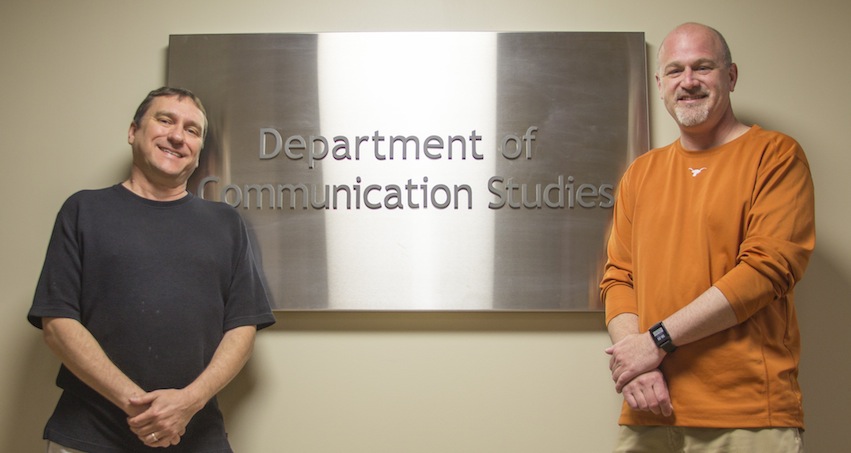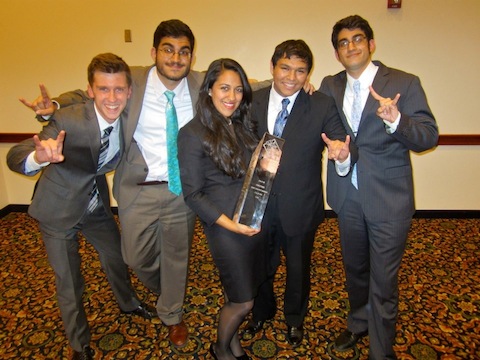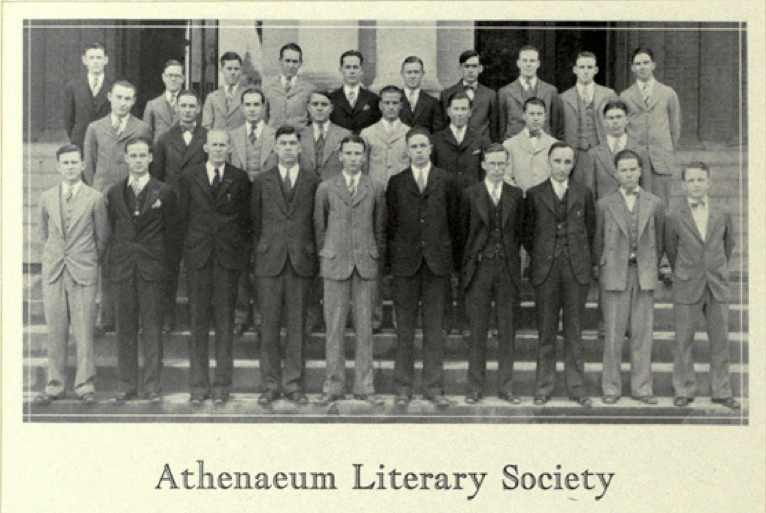Arguably the Best
This is one honor that’s not up for debate. The University of Texas at Austin speech and debate teams have won the 2014 American Forensic Association’s top overall prize, a distinction they now have claimed 19 times since the award began in 1993 — more than any other university.

The prize is given by averaging scores from the National Debate Tournament and the National Individual Events Tournament in April, the two national tournaments conducted each year by the American Forensic Association.

According to Joel Rollins (Ph.D. ’96), senior lecturer in the Department of Communication Studies and founder and director of the university’s National Institute in Forensics, known as “UT Debate,” those who participate in the competitions are well-positioned to succeed in life.
“One of our former students is a constitutional law professor who says our debate team prepared him for a life constructing valid arguments through rigorous research,” said Rollins. “My hope is that we can instill in our students a reasoned discourse that undergirds particular ideas which is in contrast to much of what we see today.”
Senior Lecturer Martin “Randy” Cox (B.A. ’91, M.A. ’94), director of the university’s Individual Events Program, known as “Texas Speech,” said the majority of his students progress to graduate, law or medical school and often become academics or use their skills in the nonprofit sector.
“For a speaker to sell an idea, they need to use effective persuasion and be able to confidently present a strong public performance,” said Cox. “Our students would say speech is learning to express a voice, which is especially important when presenting for those who aren’t able or can’t express issues, policies and politics.”
"We're not as nerdy as you think," Rodriguez said. "Anything goes in collegiate speech as long as the presenter is making a point in their argument--and it can be really exciting--there are some speeches I've presented that I wouldn't let my mom or brother watch."
Recent Radio-Television Film graduate Chelsea Rodriguez (B.S. ’14) won the National Championship in Prose Interpretation, becoming the 38th individual national champion for Texas Speech. In her four years with UT Speech, Rodriguez traveled to over 15 cities to compete. As part of the events, she spoke about issues ranging from domestic violence among undocumented populations to going through a divorce with a positive mindset.

"We're not as nerdy as you think," Rodriguez said. "Anything goes in collegiate speech as long as the presenter is making a point in their argument--and it can be really exciting--there are some speeches I've presented that I wouldn't let my mom or brother watch."
Carl Fitz (B.A. ’14) competed with UT Debate during his four years at the university. After participating in policy debates at tournaments nationwide, Fitz plans to take the skills he’s learned to law school.
“Sometimes you’ll have to argue in favor of or against the topic,” said Fitz. “There’s a lot of research involved that’s very specific — we put in probably 20 hours or so a week.”
Fitz added that some teams argue using differing forms, content, styles and approaches. These include making policy relevant to the personal lives of the average person, quoting experts, or even through dance or hip-hop performance.
“You can always lose by presenting bad policy, but sometimes you have to show why debate or discussion is good in the first place,” said Fitz. “The whole point is to get people out of their comfort zone and to realize the complexities involved in an entire issue.”

with the creation of the Athenaeum Literary Society.
